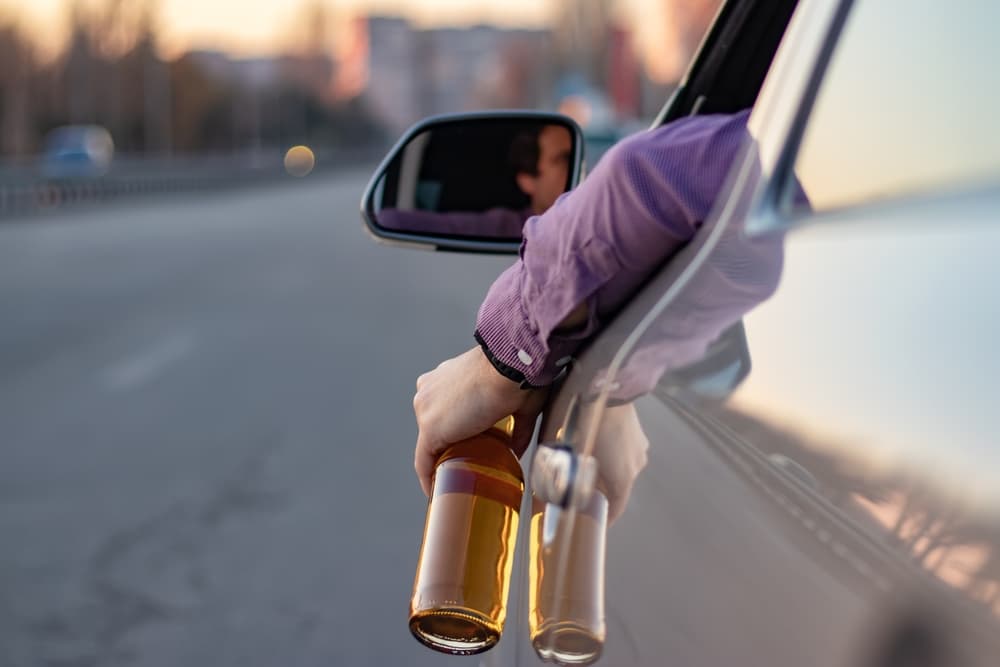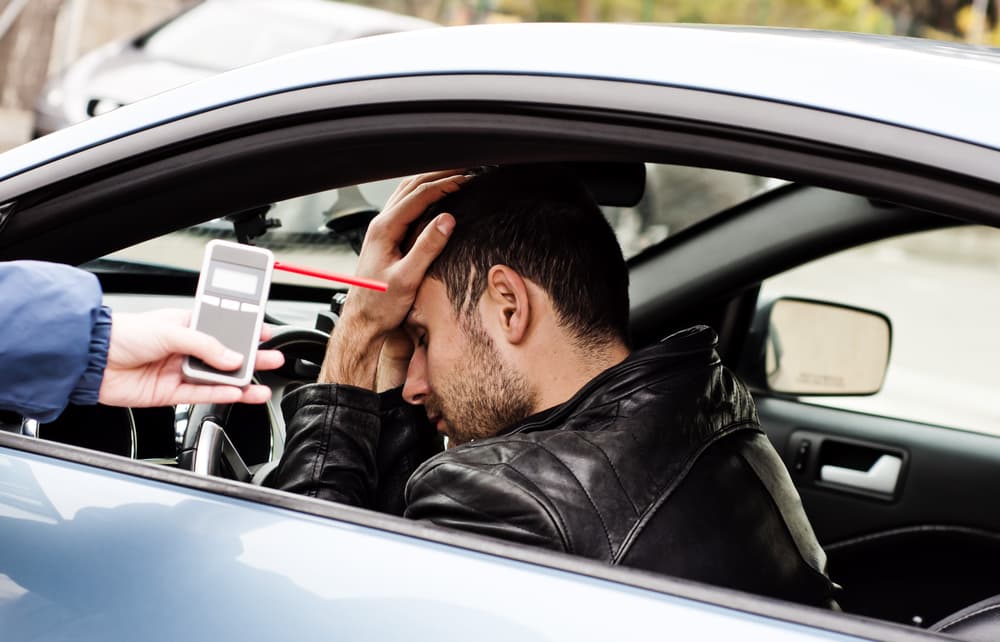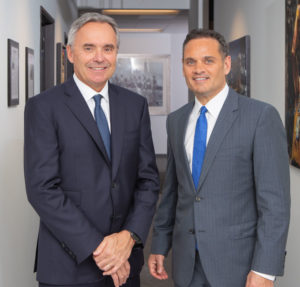How to Collect Evidence After a Drunk Driving Car Accident
How to Collect Evidence After a Drunk Driving Car Accident
After a drunk driving accident, you need to know your legal options. Driving under the influence is not only a crime but also involves responsibility for the resulting damages. While law enforcement addresses the criminal aspect of the case, you must consider your financial interests and well-being.
Hiring a drunk driving accident attorney in Newport Beach becomes a pivotal step in securing your rights to compensation. By initiating a personal injury claim in civil court against the intoxicated driver, you empower yourself with legal recourse. The driver’s conviction for drunk driving can serve as compelling evidence supporting your case.
Furthermore, your state’s dram shop laws likely provide an avenue to hold bars or restaurants accountable for serving alcohol to individuals involved in accidents. Bars may be deemed liable for the actions of intoxicated guests under specific circumstances. If you can demonstrate they served alcohol to someone already visibly intoxicated, they can be legally responsible.
In the event of a collision with a drunk driver, prompt action is essential for evidence collection. This proactive approach strengthens your case against the intoxicated driver. It enhances your prospects of obtaining the compensation you rightfully deserve.
The best way to collect and preserve evidence after a drunk driving accident is to hire an attorney. Your attorney will know what evidence is crucial and take over evidence-collection activities.
By taking these steps, you can build a compelling case and navigate the legal process with the support of a dedicated legal advocate.
Schedule a Free Initial Consultation
Why Evidence is Imperative in Personal Injury Cases

Although the standard of proof differs in a civil case than in a criminal case, you or your attorney still need to prove several points for a successful personal injury claim. You accomplish this through evidence.
To prove negligence, you must establish that the case meets the four elements of negligence:
- The at-fault party had a duty of care. In this case, a responsibility to drive in a manner that keeps others on the road safe—such as not drinking and driving.
- The at-fault party breached the duty of care. A drunk driver breaches the duty of care by driving under the influence of alcohol or drugs since this action significantly impairs the driver, making it unsafe for others on the road.
- The at-fault party’s breach of duty of care caused the accident that resulted in your injuries and losses.
- You suffered damages because of the defendant’s actions or inactions. Damages include economic and non-economic factors, such as medical expenses and pain and suffering.
While proving negligence might sound easy, there must be evidence to support each point. The at-fault party’s lawyer will also try to disprove your claim and refute the evidence you produce.
Evidence Collection: What You Need to Know
When faced with the challenge of collecting evidence after a drunk driving accident, especially if you suffered an injury or have lost a loved one, the task can be overwhelming. This is precisely where the experience and knowledge of a drunk driving accident lawyer become indispensable.
Legal representation is essential because collecting evidence independently can leave room for the at-fault party (defendant) or their attorney to challenge its authenticity.
The defense might argue that the evidence has been manipulated or contaminated, potentially jeopardizing the strength of your case in court.
While some evidence may already be in your possession, such as photos of the accident scene, obtaining a copy of medical records, or the police report, additional critical evidence might require careful handling.
For instance, physical evidence from the accident scene needs to undergo a meticulous chain of custody to ensure its preservation and relevance to your case.
By entrusting a lawyer with this process, you leverage their experience in managing evidence effectively. They can navigate the complexities, ensuring that every piece of evidence is handled appropriately, thus strengthening your case and mitigating any challenges that may arise during legal proceedings.
Understanding Evidence in a Civil Drunk Driving Accident Case
Evidence refers to anything substantiating facts relevant to your case.
After a drunk driving accident, evidence may consist of:
- Personal accounts: Your own memories and recollections documented in a journal provide valuable insights.
- Recovery process: Details about your rehabilitation and recovery contribute to the evidence.
- Driver’s account: The drunk driver’s version of the accident—although, in some cases, this might be hard to get due to the driver’s death, current medical state, or refusal to cooperate.
- Witness testimonies: Accounts from individuals who observed the incident—this can be other passengers or drivers or someone who was near the accident when it occurred.
- Observations by authorities: Reports from police and emergency medical technicians present at the accident scene.
- 911 calls: Recordings of emergency calls reporting the accident.
- Vehicle damage: Documentation or images depicting damage sustained by vehicles involved.
- Accident videos and photographs: Visual evidence capturing the scene and conditions.
- Data from electronic devices: Information from GPS units, phones, vehicle computers, dash cams, and other relevant devices
- Surveillance and traffic camera footage: Recordings from security or traffic cameras
- Official reports: The police report detailing the incident
- Chemical test results: Outcomes of Breathalyzer, blood, and urine tests
- Medical documentation: Bills, invoices, and other medical records related to your’s or other victim’s injuries
- Therapy expenses: Records of costs associated with various therapeutic interventions
- Expert witness reports: Insights from medical and investigative experts, often engaged by legal representation
- Earnings records: Documentation of income to establish lost income
- Occupational details: Documents about your profession or occupation.
Your drunk driving accident attorney will leverage this evidence to establish the extent of your injuries, justify claims for damages, and assert the defendant’s responsibility for the accident.
In jurisdictions allowing punitive damages, the attorney may use this evidence to demonstrate the defendant’s gross negligence or disregard, further strengthening your case.
Who Plays a Role in Gathering Evidence After a Drunk Driving Accident?

Various individuals and entities contribute to evidence collection in drunk driving cases, each serving a distinct purpose, including:
- Police officers: Law enforcement personnel are primary contributors, investigating the scene, documenting evidence, and compiling reports.
- Emergency medical technicians: Involved in providing medical assistance, EMTs may document the accident scene and injuries sustained.
- Accident witnesses: Individuals who witnessed the incident may provide valuable testimonies and evidence about the events leading to the accident.
- Medical providers: Professionals in emergency rooms or healthcare facilities document injuries, treatment details, and related medical information.
- Investigators: Employed by insurance companies, law enforcement, or your attorney, investigators play a crucial role in gathering evidence to support legal proceedings.
- Law firms: Legal professionals specializing in drunk driving accidents use evidence to build a compelling case on your behalf.
While these entities collect evidence for criminal investigations, traffic monitoring, and medical attention, your drunk driving accident lawyer can utilize the same evidence to strengthen your case.
Always let professionals handle evidence collection. Still, if possible, you can assist by providing specific evidence without disturbing the accident scene. For instance, taking pictures or gathering documents can help if conditions permit.
Prioritize your safety during this process. If capturing the accident scene poses risks, such as traffic hazards, refrain from doing so. Allow the police to perform their duties without interference, as any disruption might hinder the collection of crucial evidence that can support your case.
Ensure you promptly share such evidence with your attorney after retaining their services.
The Evidentiary Collection Process in a Personal Injury Case
Attorneys use various methods to gather evidence crucial to your drunk driving injury case. Initially, they may acquire existing evidence from you, such as the police report, correspondence with insurance companies, and medical records.
In instances where obtaining such information poses challenges, your attorney, with your consent, can procure these records on your behalf.
Legal professionals may further investigate or enlist the services of investigators to obtain physical evidence from the accident site and involved vehicles.
Additionally, your attorney might advise consultations with specialists or expert witnesses to assess and document your injuries, particularly if you expect long-term or permanent disabilities.
If the insurance company denies your claim or offers an inadequate settlement despite presenting this comprehensive evidence, your attorney can initiate a lawsuit.
This legal action triggers the discovery process, introducing various methods for gathering evidence, such as:
- Depositions: Statements taken under oath from the at-fault driver and witnesses.
- Interrogatories: Written questions that the defendant must answer, sign, and notarize.
- Requests for admissions: Statements of fact that the defendant must truthfully answer.
- Requests for the production of documents: Demands for relevant documents from the defendant.
- Subpoenas duces tecum: Legal orders compelling the defendant to provide documents or oral testimony.
- Subpoenas: Legal orders issued to third parties, like the police, cell phone companies, witnesses, and the at-fault driver, for documents and other evidence.
- Physical and/or mental exams: Evaluations to assess the at-fault party’s physical or psychological condition.
This comprehensive approach ensures a robust evidentiary foundation for your case, enhancing your legal standing in pursuit of just compensation.
How You Can Contribute to Your Case’s Success
Individuals often seek ways to support their attorney in building a robust case. Even without directly collecting evidence, there are actions you can take to enhance the strength of your case. Your proactive involvement can significantly impact the outcome of your legal proceedings.
To strengthen your legal position:
Prioritize Medical Care:
- Allow emergency medical technicians to provide immediate treatment at the accident scene.
- Seek prompt medical attention, even if injuries initially appear minor, as some conditions may manifest days later.
- Adhere to the prescribed treatment plan to reinforce the severity of your injuries and avoid insurance disputes.
Interact Cautiously with Insurance Companies:
- Restrict information provided to insurance companies to essential details, such as contact information, accident date, location, and your attorney’s contact details.
- Refrain from discussing the accident with insurance adjusters, redirecting them to your attorney to manage communications.
Preserve Evidence:
- Retain any documents or physical evidence of the accident, as even seemingly insignificant items may prove valuable.
- Submit all evidence to your attorney, allowing legal professionals to assess its relevance and potential impact on your case.
Exercise Caution on Social Media:
- Avoid posting details about the accident or your activities on social media platforms.
- Recognize that insurance companies monitor social media for inconsistencies and may use innocent activities against you.
- Remember that professional investigators often find ways to access private accounts, potentially compromising your case.
By taking these proactive measures, accident victims can play an active role in strengthening their cases and maximizing their chances of obtaining fair compensation. After suffering injuries in a drunk driving accident, always prioritize your well-being and legal rights.
Potential Drunk Driving Accident Damages
After suffering injuries in a drunk driving accident, you can recover compensation for both your economic and non-economic damages.
Economic Damages
Sometimes referred to as special damages, economic damages are typically easy to prove with bills, receipts, or statements.
They include the following financial obligations:
- Lost income and loss of future earning capacity
- Compensation for damaged or destroyed personal property
- Doctors’ appointments, surgeries, and follow-up appointments
- Prescriptions and prescribed over-the-counter medications
- Ambulatory aids and medical equipment, such as oxygen tanks
- Physical therapy appointments
- Counseling appointments
- Occupational therapy appointments.
- Accessibility accessories for vehicles, such as hand controls and wheelchair lifts and ramps
- Accessibility accessories at home, such as handrails, grab bars, wheelchair ramps, and widened doorways.
Non-Economic Damages
Sometimes called general damages, non-economic damages don’t have an inherent monetary value. This makes them more challenging to prove, but evidence like testimony from medical experts and medical records can help.
Non-economic damages include:
- Pain and suffering
- Mental anguish
- Emotional distress
- Loss of enjoyment of life
- Loss of consortium
- Loss of companionship
- Loss of use of a body part
- Loss of use of a bodily function
- Amputation of a digit or limb
- Scarring or disfigurement
Injured in a Drunk Driving Accident? Hire an Experienced Attorney

Greg Bentley & Keith More Newport Beach Drunk Driving Car Accident Attorney
After suffering an injury in a drunk driving accident, you need reliable legal help fast. The sooner you can get a Newport Beach personal injury lawyer to collect evidence on your behalf, the more successful your claim.


